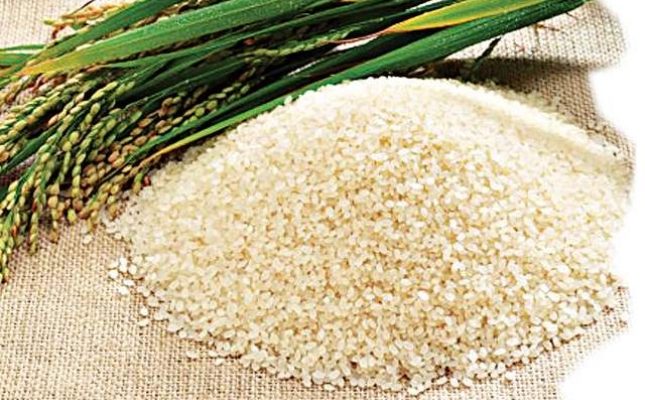The average prices of bread and rice in Nigeria have been recording significant increases in the past five years, according to data obtained from the National Bureau of Statistics.
A year-on-year analysis of the average prices from January 2017 to January 2022 based on data from the NBS shows that bread (unsliced, 500g) and rice (agric-sold loose rice) recorded 42 per cent and 48 per cent price hikes, respectively.
As of January 2017, the average price of a loaf of bread (unsliced, 500g) was N270. It however increased to N384 by January 2022.
There was also an increase in the price of sliced bread (500g) from N303 as of January 2017 to N419 as of January 2022.
The average cost of 1kg of rice (agric-sold loose rice) was N324 as of January 2017. It, however, increased to N481 by January 2022.
There was also an increase in the price of locally sold loose rice, medium-grained rice, and imported high quality sold loose rice (1kg each) from N286, N312, and N402 as of January 2017 to N430, N477, and N579 as of January 2022, respectively.
This was despite the drop in recorded overall inflation from 18.72 per cent as of January 2017 to 15.60 per cent as of January 2022.
However, the 15.60 per cent was still higher than the 13 per cent inflation target of the Federal Government for 2022.
The Federal Government has projected an inflation rate of 13 per cent in its key projections and assumptions for the 2022 budget.
The Minister of Finance, Budget and National Planning, Mrs Zainab Ahmed, had disclosed this during her presentation of this year’s approved budget recently.
She had said, “Inflation is projected to be double-digit in the medium-term given structural issues impacting the cost of doing business, including high food distribution cost. However, the current steady decline is expected to be sustained, seeing the inflation rate drop to 13 per cent in 2022 and 10 per cent by 2024.”
The country is, however, still struggling with double-digit inflation, with the World Bank projecting that Nigeria may record one of the highest inflation rates globally in 2022, with increasing prices diminishing the welfare of Nigerian households.
According to the Washington-based bank in its Nigeria Development Update report, Nigeria may have the seventh-highest inflation rate among sub-Saharan African countries in 2022.
The CBN had projected last year that the country’s inflation rate would drop to a single digit in 2022, with the full implementation of its recent policies designed to boost different sectors of the economy.
The CBN had projected last year that the country’s inflation rate would drop to a single digit in 2022, with the full implementation of its recent policies designed to boost different sectors of the economy.
However, the World Bank had said that the Federal Government of Nigeria did not take any concerted action towards curbing inflation in 2021 despite inflation shock pushing an estimated eight million Nigerians below the poverty line.
The report read in part, “Double-digit inflation rates are depressing economic activity and exacerbating poverty. Rising food prices are eroding household purchasing power, and we estimate that during 2020 and 2021, the ‘inflation shock’ alone pushed about eight million more Nigerians below the poverty line.”
It added, “Without decisive action, the average inflation rate for 2021 will exceed that for 2020 and will be unlikely to approach the CBN’s target range of 6–9 per cent by end-2022.
“The inflation rate has not fallen to nine per cent since 2014, but in a hypothetical scenario where the inflation rate would have been close to the CBN’s goal of 9 per cent in 2020 and 2021, the consumption level of the average Nigerian would have been at least 15 per cent higher today.”
Aside from the World Bank, a United States-based magazine, Global Finance, had said the CBN failed to curb rising inflation and stop the naira from sliding against the United States dollar.
All rights reserved. This material, and other digital content on this website, may not be reproduced, published, broadcast, rewritten or redistributed in whole or in part without prior express written permission from PUNCH.
Source Punch














